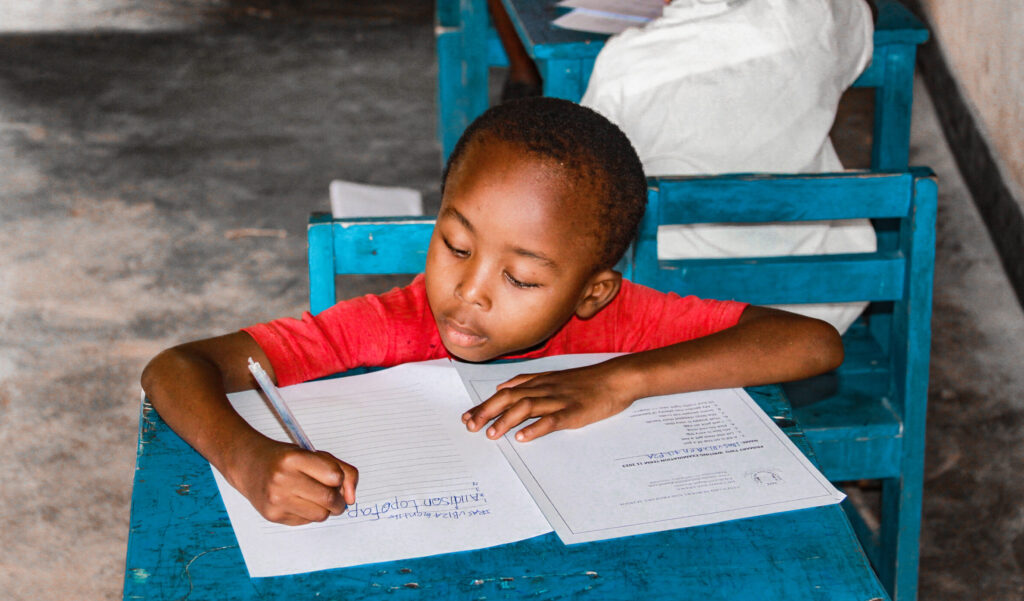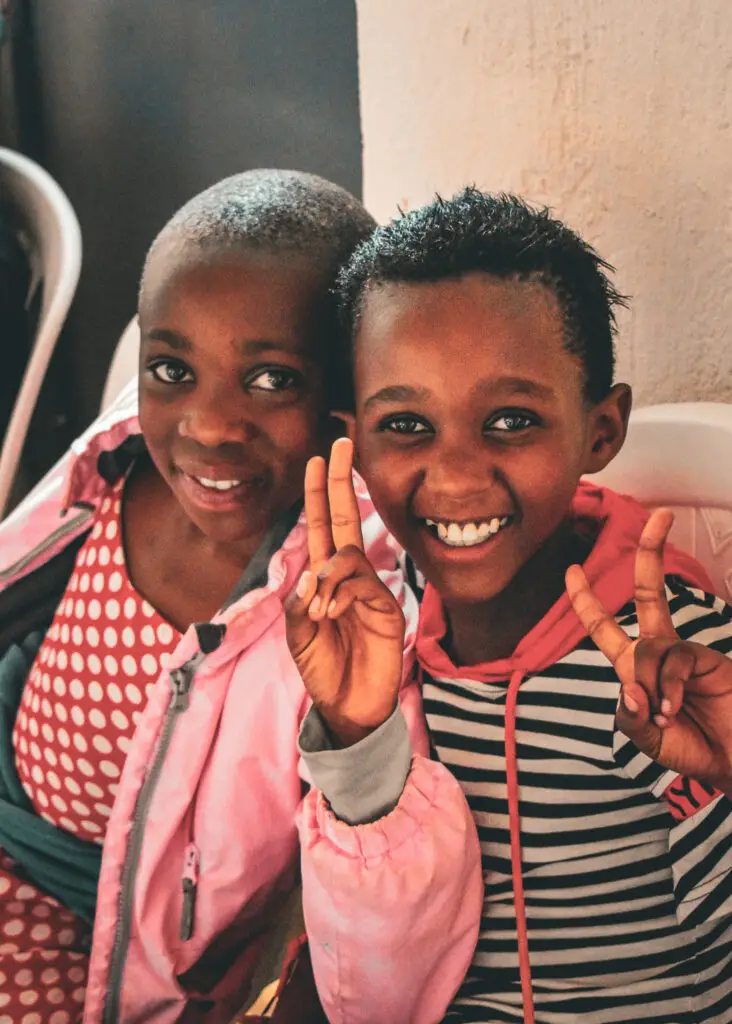A STORY:
Imagine reaching school age and your family is destitute, with no resources beyond some shelter and maybe some food. One Sunday your parents take you with to church. You are patient but it is very hard. You watch and wonder what all the excitement is about. You hear a language that is unfamiliar to you, and you wonder what is being said? When the service is over your parents speak with someone and add your name to a waiting list. Your attention is on the other children playing on a near by playground.
Months go by and then one day someone from the church stops by and says they’d like you to start coming to school. They tell you an advocate will help pay for your schooling. You have no idea what an advocate is or why they’d help you. You are not sure about going to school, though you know others who attend. Later your parents explain that they never received an education, and they want you to have one, that is why they put your name on the waiting list. You know in your heart this is love and accept this gift.
This story may seem far-fetched but it is all too real around the world. To be able to advocate for children through Rooted Oaks International, what a privilege! For nearly a hundred children who attend the Vineyard Nursery and Primary School advocate support is everything. For many advocates we take for granted our own education, our standing economically, and our capacity to help others through giving.
Do we know how impactful our advocacy is to these children?
Is it possible to wrap our heads around not having an educational pathway?
“I am a typical example of someone who was born poor. Supported by a Catholic missionary for
my education. Today, I am no longer poor. I am who God made me to be. Now a lawyer. A
pastor supporting my community and sharing the love of God. I am a husband, father and
provider for my family. No longer a burden to the government.” –Pastor Antoine
Poverty is a world-wide problem and its detrimental impacts on children are seen in every country. Children International reports: In developing nations (like Rwanda), 60% of ten-year-old children suffer from learning poverty, unable to read/understand simple stories. Eight percent fewer girls complete lower school than boys. Finally for every year a girl is in school, her average income increases 10%.
This information shows us the value of education for children who live in poverty. As advocates we are the opportunity for education in the lives of children. We are a source of hope for a future that doesn’t include poverty as a barrier. We as advocates can change for the better the statistics which reflect our children in the decades to come.
My goal “has been to bring a Christ centered, quality education to the poor children of my community. For us to cut the chain of poverty from the lineage of the family and redemption.”
As advocates we need to reflect on our own experience with education, the students we hung out with. No matter our attained level of education, there is always someone who did not have the opportunities we did. No matter our lives now, there are still children world-wide who have no access to an education without the sort of help advocates provide.
The future for that child’s family is brighter for even one child to get an education. To find gainful employment, and to be able to lend support to the rest of the family. By providing an education to one child we advocates provide a pathway out of poverty for the whole family. A chance at a real home, and a life beyond what is required for survival. The stability of income to have a place to live, buy food, and other necessities, otherwise unattainable in the midst of poverty.
This may seem like a rose-colored glasses view of our potential impact, but statistics support the benefits of education raising many out of poverty.
“For instance, we have a situation where someone finished public secondary school who cannot speak English. A child at the Vineyard Nursery and Primary School can speak English by p5 (fifth grade).”
Consider for a moment your advocate child learning to read and write not only in their native language but in English too. In the USA we have foreign languages as an elective course. But in many countries across the world English is a mandatory language of education. Why? It is the language of business and government, and a building block to further education and to gainful employment. It is an opportunity to an education beyond the community, and the country in which someone lives.
This is what we as advocates are sharing with our children, this is their way to rise!
Think about the mentors, teachers, pastors, employers, parents who encouraged you, provided advice and assistance in your journey through your education. How valuable were those people to whatever level of education you attained? These individuals were necessary part of our experience, but for many in poverty they have no one to champion for them in this way. Just day to day survival is all they can muster, aspiration for anything more appears unreachable.
Advocates, we can be the start of our children having a mentor, teachers, employers who can encourage and advise them along their journey. We can fill a role for them as they rise through education and ascend to new unimaginable heights. As our hearts are full in advocating for our child(ren), so must our minds be full of the ways to support their education, providing not just financially, but socially, emotionally, practically, and educationally for them to arise.
How do we define the success of our advocacy? In what ways can an advocate even from half way across the world support our children? How can an advocate become a mentor, a source of encouragement, or an advisor?
“Instead of giving someone fish it is better to teach them to fish, so they can always fish for themselves.” Education of the poor child, like teaching them to fish, provides for opportunities for their future and their families future.
“Advocates through their commitment are doing an amazing job, which will have a huge impact on our society.”
Become an Advocate
Interested in Investing in a Child's Education?
Visit our website today to become an advocate for a child in Rwanda. $35 a month covers their school fees, uniforms, supplies, and medical insurance.



